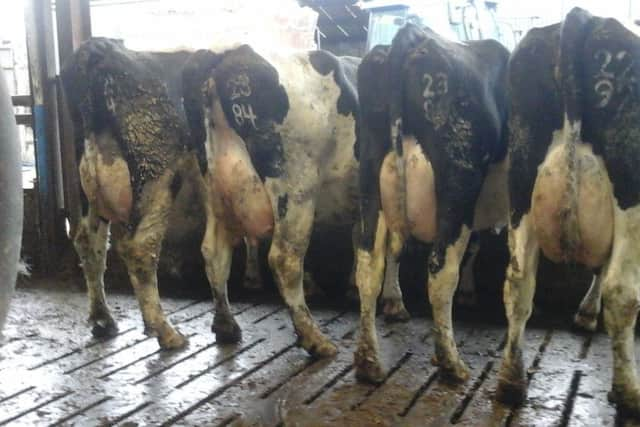Lanston Herd is one of the top 50 PLI herds in UK


The GMS 2.0 programme is a mating programme which is revolutionising dairy herd management as it provides local dairy farmers with a significantly better tool for making sound strategic decisions about their herds - decisions that will ultimately impact on profit margins for years to come.
The Lanston herd is run by Adrian, Clarence and Aaron Houston and has excellent production figures - a herd average of 8984kg milk with great components - 4.21% fat and 3.38% protein. Bulls used this year include ABS Achiever, K & L BO Darwin, Midwolder Marquis and Bomaz Daredevil.
Advertisement
Hide AdAdvertisement
Hide AdAaron explained: “We were interested in using the system initially to create uniformity in the herd, making breeding decisions easier and reducing the number of bulls we used.” He continued: “The system takes all the information from our herd, setting parameters for both production and conformation that suit the type of cow we want to breed.”


Ian Watson, Head Evaluator for Genus ABS in Northern Ireland, added: “Firstly we identify the production and conformation options that best fit the farm operation. Next, we assist the farmer to rank production, health and conformation in order to build a customised genetic improvement roadmap to help them reach their goals in the shortest amount of time. Reports are then generated and sent to the farmer to use.”
Ian emphasised: “GMS 2.0 also provides inbreeding management and offers dairy farmers the most complete protection against detrimental recessives and haplotypes.”
In addition, GMS 2.0 brings many other new benefits to dairy farmers, including:
Advanced Customisation


l 150 different customisation options
l Robot focused options
l Complete breeding strategy management
Genomic Incorporation
l Utilisation of female genomic data
l Improved inbreeding management
l More precise matings for optimum genetic progress
Increased Efficiencies
l 14 customised reports to help monitor genetic progress
l Instant reporting capabilities
Advertisement
Hide AdAdvertisement
Hide AdAdrian, Clarence and Aaron have been using the mating programme for over five years and have noticed the continual improvement of the herd.
Adrian commented: “In future we would like to incorporate genomic data into our breeding programme, this system allows us to do that. GMS 2.0 will remain an integral part of our breeding strategy for the foreseeable future.”
For more information on GMS 2.0 and how the technology can benefit your dairy herd, contact your local Genus rep or the office in Portadown on 028 38 334426.